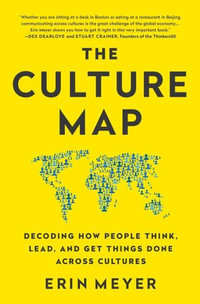How have Japanese companies become world leaders in the automotive and electronics industries, among others? What is the secret of their success? Two leading Japanese business experts, Ikujiro Nonaka and Hirotaka Takeuchi, are the first to tie the success of Japanese companies to their ability to create new knowledge and use it to produce successful products and technologies. In The Knowledge-Creating Company, Nonaka and Takeuchi provide an inside look at how Japanese companies go about creating this new knowledge organizationally.
The authors point out that there are two types of knowledge: explicit knowledge, contained in manuals and procedures, and tacit knowledge, learned only by experience, and communicated only indirectly, through metaphor and analogy. U.S. managers focus on explicit knowledge. The Japanese, on the other hand, focus on tacit knowledge. And this, the authors argue, is the key to their success--the Japanese have learned how to transform tacit into explicit knowledge.
To explain how this is done--and illuminate Japanese business practices as they do so--the authors range from Greek philosophy to Zen Buddhism, from classical economists to modern management gurus, illustrating the theory of organizational knowledge creation with case studies drawn from such firms as Honda, Canon, Matsushita, NEC, Nissan, 3M, GE, and even the U.S. Marines. For instance, using Matsushita's development of the Home Bakery (the world's first fully automated bread-baking machine for home use), they show how tacit knowledge can be converted to explicit knowledge: when the designers couldn't perfect the dough kneading mechanism, a software programmer apprenticed herself with the master baker at Osaka International Hotel, gained a tacit understanding of kneading, and then conveyed this information to the engineers. In addition, the authors show that, to create knowledge, the best management style is neither top-down nor bottom-up, but rather what they call "middle-up-down," in
which the middle managers form a bridge between the ideals of top management and the chaotic realities of the frontline.
As we make the turn into the 21st century, a new society is emerging. Peter Drucker calls it the "knowledge society," one that is drastically different from the "industrial society," and one in which acquiring and applying knowledge will become key competitive factors. Nonaka and Takeuchi go a step further, arguing that creating knowledge will become the key to sustaining a competitive advantage in the future.
Because the competitive environment and customer preferences changes constantly, knowledge perishes quickly. With The Knowledge-Creating Company, managers have at their fingertips years of insight from Japanese firms that reveal how to create knowledge continuously, and how to exploit it to make successful new products, services, and systems.
Industry Reviews
"A fascinating, exciting exposure to a new way of thinking about the knowledge-based company....Provides a model of knowledge creation that will be a touchstone of future work in this field....This important, imaginative book will challenge and intrigue managers and management scholars alike."--D. Eleanor Westney, MIT Sloan School of Management in the Sloan Management Review
"A fascinating volume that will interest philosophers, managers, and more common readers....The analyses are so thorough that they make the one- and two-page descriptions in Forbes magazine seem like elementary fairy stories. The authors have done their research well and provide delightful details."--Minneapolis Star Tribune
"Knowledge creation is to the 90s what excellence was to the 80s. I can't imagine a better book on organizational design for innovation. Nor can I imagine a better common focus for managers and scholars. This is the best and most original blend of organizational theory and practice we are likely to see for some time."--Karl E. Weick, University of Michigan School of Business Administration
"This is the most creative book on management to come out of Japan. The same authors who introduced the rugby approach to new product development, now bring us a myriad of new concepts: tacit knowledge, the oneness of mind and body, middle-up-down management, hypertext organization, to name a few. The insights for this book originated in Japan, but the managerial implications are universal. It is a must read
for managers competing in the borderless world."--Kenichi Ohmae, Ohmae & Associates
"Nonaka and Takeuchi take on a subject that is truly on the frontier of management: the process by which companies learn and create competitively valuable knowledge. What is refreshing about this book is that Nonaka and Takeuchi go beyond the slogans that have characterized much of the previous work on this subject, and delve into the specific organization structures and processes involved in organizational creativity and learning. They bring a wealth of
specific, in-depth company evidence to bear on the task. The result is an important book which will advance both the literature as well as corporate practice."--Michael E. Porter, C. Roland Christensen
Professor of Business Administration, Harvard University
"A fascinating, exciting exposure to a new way of thinking about the knowledge-based company....Provides a model of knowledge creation that will be a touchstone of future work in this field....This important, imaginative book will challenge and intrigue managers and management scholars alike."--D. Eleanor Westney, MIT Sloan School of Management in the Sloan Management Review
"A fascinating volume that will interest philosophers, managers, and more common readers....The analyses are so thorough that they make the one- and two-page descriptions in Forbes magazine seem like elementary fairy stories. The authors have done their research well and provide delightful details."--Minneapolis Star Tribune
"Knowledge creation is to the 90s what excellence was to the 80s. I can't imagine a better book on organizational design for innovation. Nor can I imagine a better common focus for managers and scholars. This is the best and most original blend of organizational theory and practice we are likely to see for some time."--Karl E. Weick, University of Michigan School of Business Administration
"This is the most creative book on management to come out of Japan. The same authors who introduced the rugby approach to new product development, now bring us a myriad of new concepts: tacit knowledge, the oneness of mind and body, middle-up-down management, hypertext organization, to name a few. The insights for this book originated in Japan, but the managerial implications are universal. It is a must read
for managers competing in the borderless world."--Kenichi Ohmae, Ohmae & Associates
"Nonaka and Takeuchi take on a subject that is truly on the frontier of management: the process by which companies learn and create competitively valuable knowledge. What is refreshing about this book is that Nonaka and Takeuchi go beyond the slogans that have characterized much of the previous work on this subject, and delve into the specific organization structures and processes involved in organizational creativity and learning. They bring a wealth of
specific, in-depth company evidence to bear on the task. The result is an important book which will advance both the literature as well as corporate practice."--Michael E. Porter, C. Roland Christensen
Professor of Business Administration, Harvard University
"This book provides the best and deepest insights into how Japanese companies innovate. For the first time ever, Western managers will be able to learn how Honda, Canon, Matsushita, and others tap the intellectual capital of their workers to create and expand knowledge. At the same time, the book shows what Japanese managers are learning from Western companies to compete more effectively in the emerging 'knowledge society.' The book taps the best of two worlds
like no other book I have ever read."--Yotaro Kobayashi, Chairman and CEO, Fuji Xerox Co., Ltd.
"The authors' major points are clear--and clearly contradict currently held business management theories."--Booklist
"...highly recommended...for readers doing business in and with Japan."--Library Journal
























